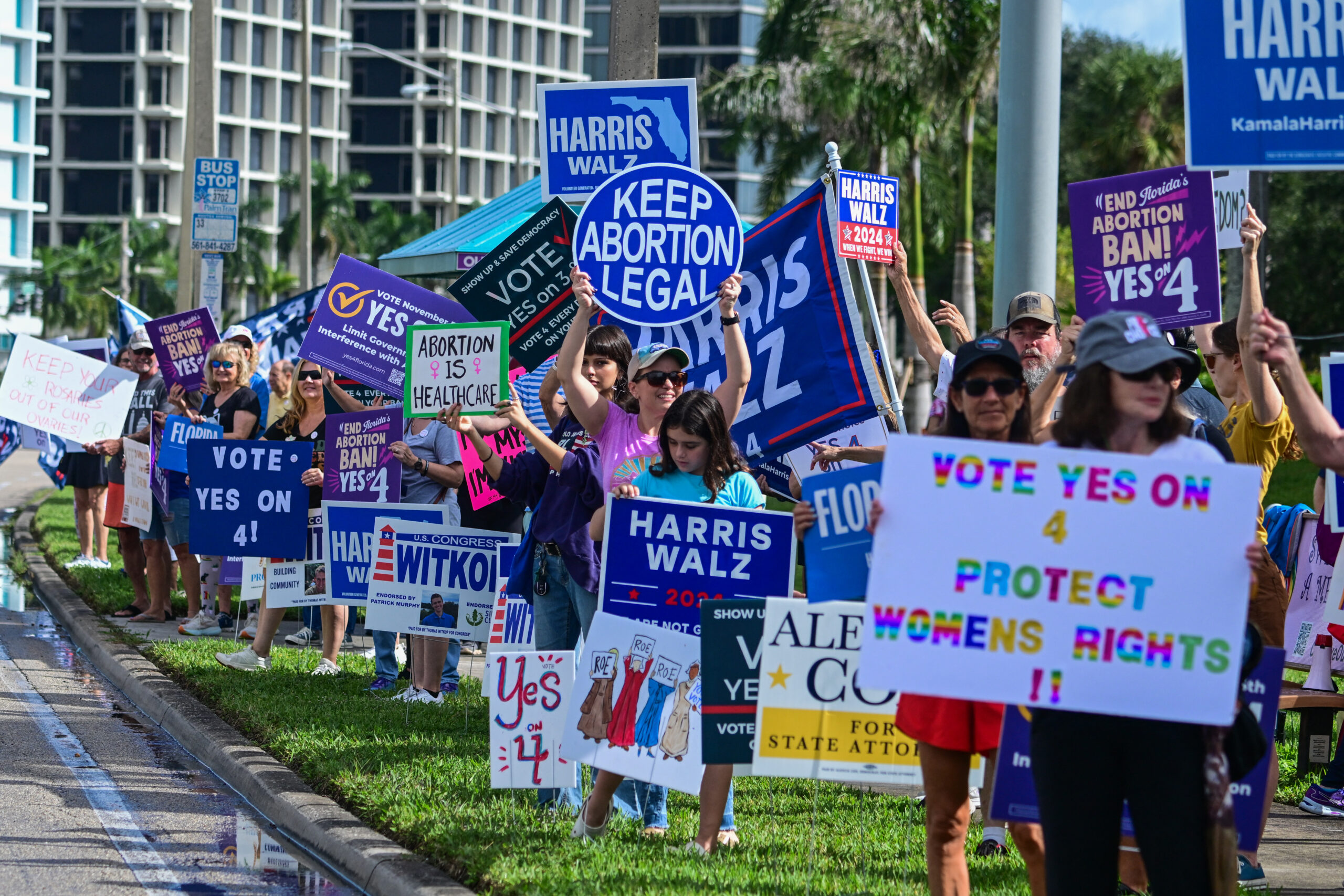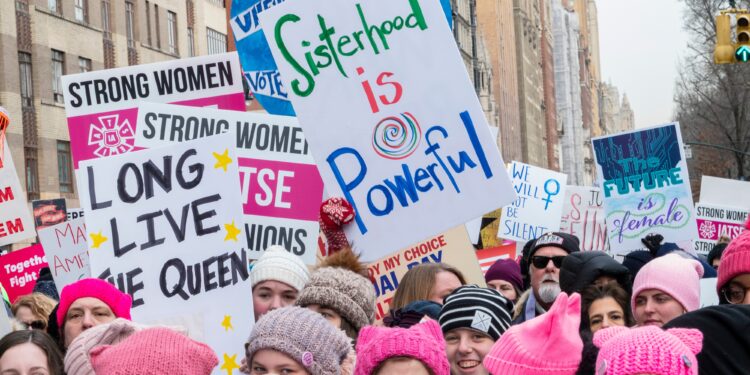The victory of Donald Trump in the elections has prompted a segment of American women to explore a fringe feminist movement from South Korea, referred to as 4B.
Following the president-elect’s announcement of his win and the failure of three pivotal referendums concerning abortion rights, there has been a notable increase in social media interest and Google queries about 4B in the U.S., as younger American women contemplate rejecting romantic or sexual engagements with men.
Many of these women are said to be furious over the fact that a significant portion of their male peers voted for Trump, who has been found responsible for sexual misconduct, is facing numerous allegations of sexual assault, and initiated a process that led the Supreme Court to overturn Roe v. Wade.
Originating in the 2010s, the 4B movement derives its name from the Korean terms “bihon,” “bichulsan,” “biyeonae,” and “bisekseu,” which translate to no marriage, no childbirth, no dating, and no sexual relations with men. It gathered momentum in South Korea in 2019 as women in the nation confronted entrenched gender inequality issues.
According to the Organisation for Economic Co-operation and Development, South Korean women earn about 30% less than their male counterparts. Despite its status as one of the world’s leading economies, women are still severely underrepresented in high-ranking and managerial positions.

For women in the United States, the 4B movement heavily emphasizes personal defiance against a conservative political environment and seeks to challenge the erosion of reproductive rights. This focus is intertwined with the online misogyny propagated by the manosphere and incel ideologies.
“We have pleaded and pleaded for men’s protection and done everything we were supposed to, and they still despise us,” stated Ashli Pollard, 36, in an interview with CNN. “So if you’re going to continue to hate us, we’ll simply do what we choose.”
Others, including 25-year-old Jada Mevs, expressed that it is fundamentally about reclaiming power.
“If we can’t dictate what happens regarding legislation and abortion rights, we must take action for ourselves,” she shared with The New York Times. “Beginning by eliminating male influence from our lives and ensuring we’re taking the necessary safety measures, like visiting OB-GYNs and being ready for what January brings and the years to follow.”
Michaela Thomas, 21, voiced similar thoughts, recalling that she became aware of the 4B movement about a year prior.
“Young men expect sexual relations, yet they also want to restrict our access to abortion,” Thomas expressed to The Washington Post. “They can’t have it both ways. Young women prefer not to be involved with men who don’t advocate for women’s rights; it signifies a lack of respect.”
The choice to embrace the 4B movement, however, has not come without repercussions. After ending her relationship with her boyfriend due to his dismissive attitude towards Trump’s sexual abuse allegations, Abby K., a 27-year-old from Florida, shared with CNN that she posted a video detailing her commitment to the 4B movement. This video, she explained, led to a barrage of death threats, insults, and hate messages flooding her DMs from men.
While the exact popularity of the 4B movement is unclear, some critics argue that it is unlikely to gain mainstream traction. They highlight that 52% of white women voters supported Trump.
Nonetheless, Abby K. remarked, “I can certainly envision it sparking change in some capacity.”


